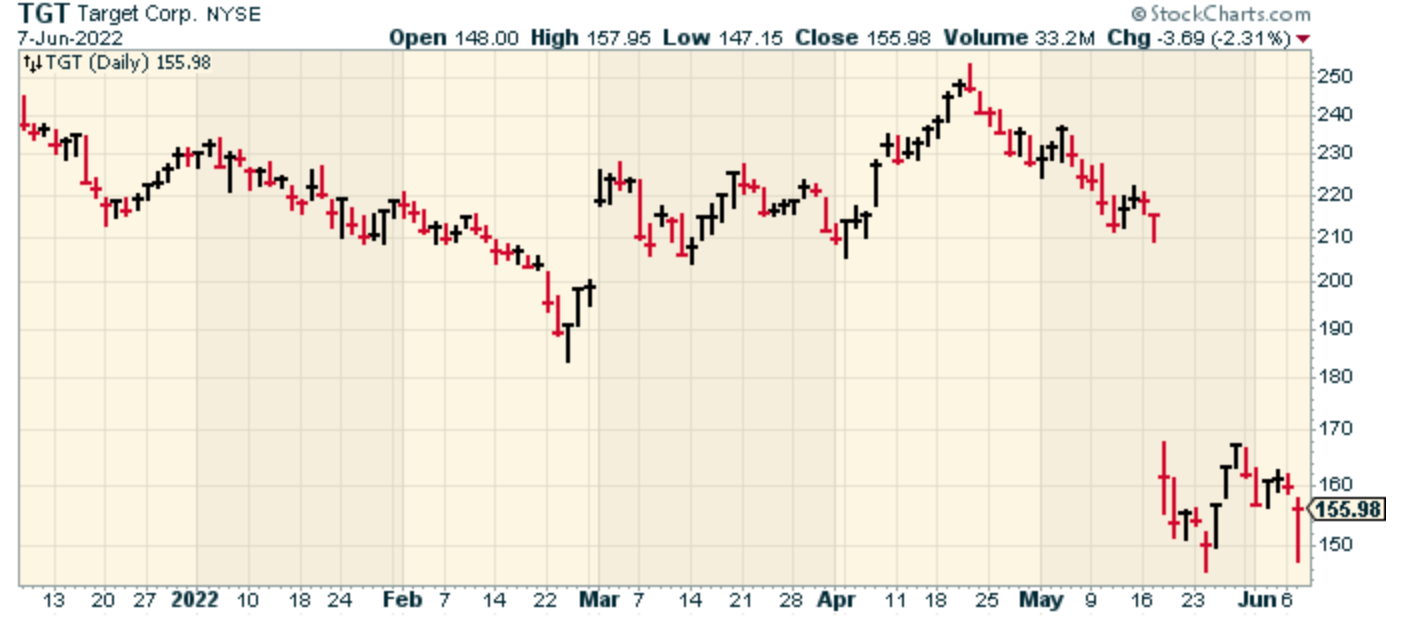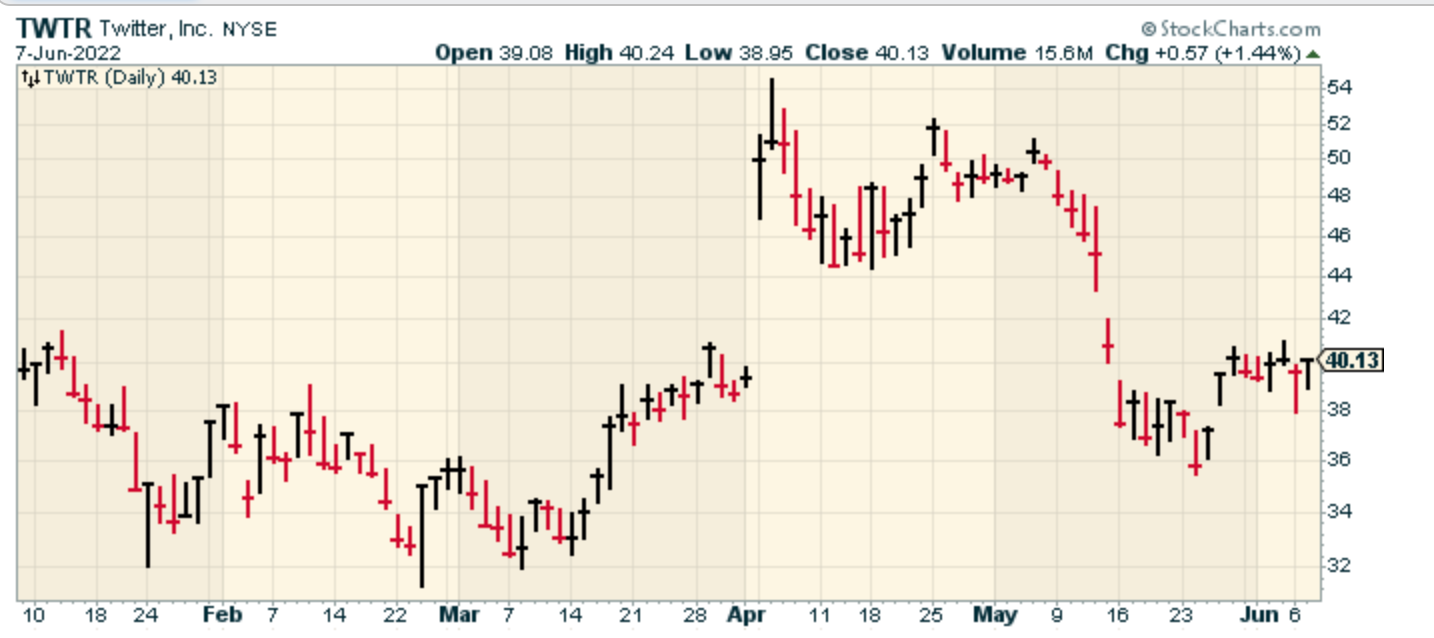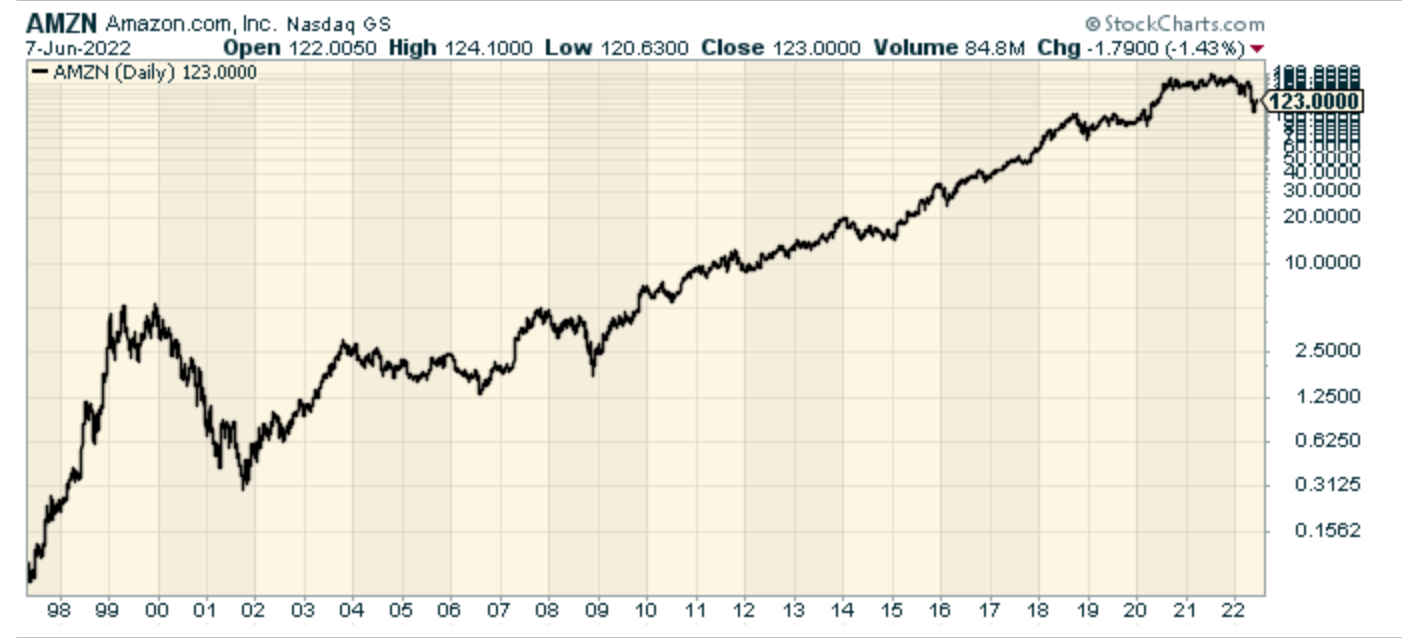CWS Market Review – June 7, 2022
(This is the free version of CWS Market Review. If you like what you see, then please sign up for the premium newsletter for $20 per month or $200 for the whole year. If you sign up today, you can see our two reports, “Your Handy Guide to Stock Orders” and “How Not to Get Screwed on Your Mortgage.”)
Targets Flails Again
The bear market rally already seems to be losing momentum. From the low on May 20 to the high on May 27, the S&P 500 bounced more than 9%. Since then, stocks have mostly flatlined although today was a nice day.
One of the important characteristics of bad markets is that they tend to be over quickly. Even within a bear market, most of the worst damage happens over a brief time. In the current sell-off, the worst damage came over a five-day period. From May 4 to May 11, the S&P 500 lost 8.5%. That’s brutal. Take that off the table (and granted, it’s a lot of overlook), and the current market is hardly noteworthy.
What will happen next? I have no idea, but there still seems to be a lot of distressing news out there. Just look at Target (TGT). The only target worth mentioning is the one that Wall Street apparently has on them.
A few weeks ago, shares of Tar-jay got steamrolled for a 25% loss in one day after the retailer released a terrible, horrible, no good, very bad earnings report. For its fiscal Q1, Target made $2.19 per share. Wall Street had been expecting $3.07 per share.
Yet the company is still having issues. On Tuesday, Target said that it’s going to take a near-term hit to its earnings. The company is going to cancel orders and slash prices on its inventory. If you’re a retailer, the worst thing you can have is a loaded warehouse full of stuff nobody wants. The only way out is to slash prices. That, of course, hits your bottom line. Actually, in this environment, Target can’t even slash prices. They’re only raising them more slowly than their competitors.
Target said that its inventory rose 43% last quarter. That’s very not good. What happened is that during the pandemic, shoppers used their stimmies to get things like electronics, small appliances and outdoor patio furniture. Once you get stuff like that, you’re set for a few years, so now consumers aren’t buying any of those things.
Target desperately wants to clean out its warehouse as soon as it can. That way it can put higher-margin products back on its shelves. One easy way to judge a company’s fiscal health is to look at its operating margin. Or more specifically, the direction of its operating margin. If they’re expanding, that’s usually a good sign. It says the company is managing its inventory and that it has pricing power in the market.
Previously, Target said it had been expecting its operating margin to be around 5.3%. Now the company is expecting operating margin for Q2 of about 2%. That sounds small but for a big company, it’s a massive difference. Target did say it expects to see its operating margin improve to 6% for the latter half of this year. Hmm. We’ll see.
This is a trend we’ve seen at some other retailers. Sales are up but profits are down. Thanks to inflation, shoppers are spending more on less. Combined with that is how Covid has altered consumer spending patterns.
Target isn’t the only retailer under pressure. If you recall, Walmart (WMT) also had a lousy earnings report. For Q1, Walmart made $1.30 per share which missed the Street by 18 cents per share. During the quarter, their inventory ballooned by 30%. Some of it is due to inflation, but it’s also the result of Walmart stocking up on goods to meet demand during the pandemic. Now Walmart says that about 20% of their inventory is stuff it wished it didn’t have.
What’s particularly troubling is for Target to have two such bad announcements coming so closely together. The stock just dropped 25% in one day, and now this? With any sort of damage control, you need to be ahead of the news. If not, then you’re not controlling the damage.
At one point this morning, shares of Target were down 8%. It made back some of that, but it was not a good day for Target shareholders. Walmart and Amazon were also down today. If the big boys in retail are having this much trouble, I hate to think what the smaller players are dealing with.
The Musk/Twitter Saga
I feel like we’re heading to the denouement of the Saga of Elon Musk and Twitter (TWTR). It doesn’t look like any deal is going to happen.
Don’t take my word for it. When in doubt, look at what the market is saying. Twitter’s share price is currently just below $40 per share. The stock would have to jump 35% to reach Musk’s offer price of $54.20 per share.
The latest news is that Musk is threatening to walk away from the deal. He’s claiming that Twitter is in “material breach” of the buyout deal.
Musk, or rather his lawyers, said that Twitter is “actively resisting and thwarting” Musk’s attempts to get info on the company.
The issue is that Musk wants to see proof behind Twitter’s claim that bots represent less than 5% of their accounts. I’m afraid this is a bit disingenuous on Musk’s part. Frankly, being concerned about a bot issue at Twitter is like a hockey team complaining that the other team is pushing and checking. Everyone knows Twitter is loaded with bot accounts.
Twitter has used the 5% number for several years. Musk has said the number could be as high as 90%. Twitter said that it intends to close the deal and “enforce the merger agreement at the agreed price and terms.” Yeah, that ain’t gonna happen.
I think it’s clear that Musk wants out of the deal and he’s using this as a convenient excuse. This is speculation on my part, but I suspect that Twitter employed an investment banker to give them an honest assessment of Twitter’s true value, and the answer they provided was very low. As a result, Twitter saw Musk’s offer as a great deal. Bear in mind that Musk has said that “having a public platform that is maximally trusted and broadly inclusive is extremely important to the future of civilization.”
I think Musk enjoyed the fun of making the Twitter execs and employees nervous. He’s got a 12-digit fortune, so why not have some fun? Plus, he has a valid point that Twitter’s banning policies seem arbitrary.
If both sides take the matter to court, then it may not turn out well for Musk. According to the deal, Twitter is allowed to sue and force the acquisition. That is, assuming Musk’s financing remains in place.
You’ll notice that there tends to be a big difference between what Musk tweets and what his lawyers say in official documents submitted to the SEC.
This deal isn’t going to happen and Twitter shareholders will lose out. On the plus side, a small number of lawyers were very well-paid.
JetBlue Raises Its Offer for Spirit
A few weeks ago, I wrote about the frenzied bidding war between JetBlue (JBLU) and Frontier (ULCC) for Spirit Airlines (SAVE). I always love a good bidding war and this one is still going on. JetBlue refuses to let the deal get away from them.
On Monday, JetBlue sweetened its offer, now offering Spirit shareholders $31.50 per share in cash. That includes $30 for the airline plus $1.50 per share to cover a reverse break-up fee.
Earlier, JetBlue offered $33 per share for a friendly deal. They later offered $30 per share in a hostile deal. JetBlue is really going to the wall for Spirit. The company said it is willing to make “unprecedented divestiture commitments” to close the deal.
On Friday, Spirit shareholders are due to vote on Frontier’s offer. Spirit’s board has unanimously endorsed the Frontier deal. One major sticking point is the anti-trust concerns if Spirit goes with JetBlue. For the time being, Spirit is sticking with Frontier, but that could change.
If it does change, that would be a remarkable victory because it would prove to everyone that shareholders truly run a company, not senior management.
I’m still put off by JetBlue’s behavior. It seems that they’re far too eager to get this deal at any price. My fear is that they see the loss of Spirit as the major threat to their future health. That may not be the case, but they’re sure acting that way.
Amazon Splits 20-for-1
Earlier this week, I got a text alert informing me that shares of Amazon (AMZN) were down by 95%. This news was technically accurate. Amazon’s nominal share price was down by 95%. The algorithm that generated the alert failed to account for the fact that Amazon had split its stock 20-for-1.
I’m not aware of any stock split that large. Maybe it’s a trend. Google will also be splitting its stock by 20-for-1 next month.
I remember that stock splits were popular in the 1990s. It’s an easy press release for your investor relations team. Of course, a stock split does nothing for your stock, but it sounds like it’s good news.
Some companies lean too heavily on stock splits. I remember when Jet Blue split its stock 3-for-2 three times in a few years even though the stock hadn’t done much.
It is curious why companies use stock splits. They wouldn’t do it unless it met some demand from investors. Many years ago, when I worked on the retail side, I was often surprised by how often investors shied away from stocks over $100 per share. I think the sweet spot was around $30 to $50 per share.
In today’s market, we have things like zero commissions and fractional shares, yet there’s still a demand for stock splits. They used to say that it helped liquidity, but that seems like a stretch.
For Amazon, this is their first stock split since the 1990s. In a 15-month period, Amazon split its stock three times for a combined 12-for-1. Add in this week’s split and the shares have grown by 240-fold since the IPO 25 years ago.
When Amazon debuted, it was for $18 per share. In split-adjusted terms, that works out to 7.5 cents per share. That’s enough to turn $3,000 in $50 million. That also includes a period when Amazon dropped by 95% (a real 95% drop, not a phony alert).
Here’s an article I wrote five years ago on the occasion of Amazon’s 20th birthday as a public company.
By the way, Google’s share price is currently around $2,200. If that holds, then it will be around $110 post-split. That means that a stock named for 10^100 will be roughly 10^2. This concludes your nerd fun for the day.
That’s all for now. I’ll have more for you in the next issue of CWS Market Review.
– Eddy
P.S. Don’t forget to sign up for a premium subscription: $20 per month or $200 for the whole year!






